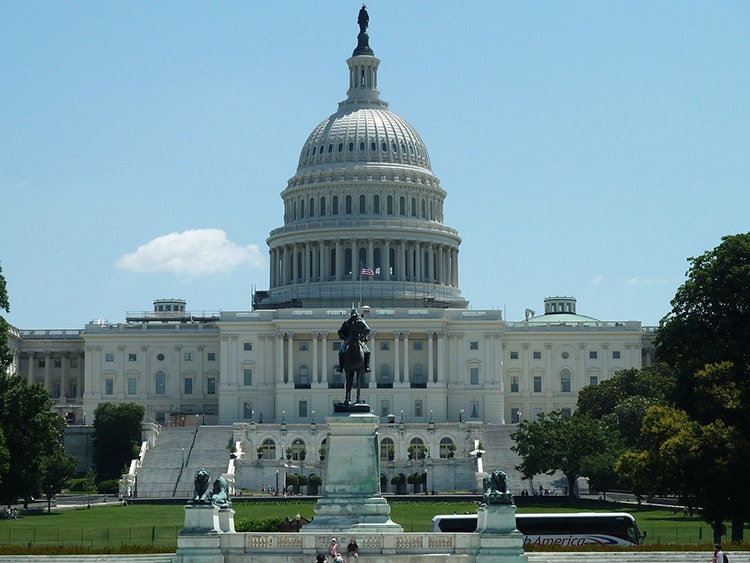Congressional leadership and the Trump Administration came to agreement and released a massive $2 trillion economic stimulus package, the Coronavirus Aid, Relief, and Economic Security (CARES) Act. While it is expected to pass both chambers of Congress and be signed into law by President Trump in the coming days, it is possible that additional changes might be made.
“With this bipartisan deal, Washington is providing a vital lifeline to protect millions of travel workers and help businesses of all sizes keep their lights on through the worst of the health crisis,” said U.S. Travel Association President and CEO Roger Dow about this COVID-19 economic stimulus package. “No legislative package was ever going to erase 100% of the pain from the economic catastrophe being caused by coronavirus, but this deal gives the travel economy a fighting chance to weather the eye of the storm and prepare to quickly lead the recovery.
Stimulus package details
A summary of the travel-relevant provisions in the stimulus package and how they compare with U.S. Travel’s recommendations include:
- $377 billion in loans and loan forgiveness for small travel businesses: The bill provides small travel businesses (500 employees or less), self-employed individuals, and 501(c)(3) nonprofits with enhanced and expedited Small Business Administration (SBA) loans, which will be made available quickly through community banks. Loan recipients can receive tax-free forgiveness on a portion of the loan, equal to eight weeks of payroll and other expenses.
- U.S. Travel advocated for at least $300 billion in enhanced SBA loans, with increased loan limits, broader eligibility, no collateral requirements, and loan forgiveness, all of which were included in the CARES Act.
- $454 billion in federally backed financial assistance for impacted businesses: The bill provides $454 billion through the Treasury Department and Federal Reserve to assist impacted travel businesses and governmental entities through secured loans, loan guarantees and other financial measures. The broad eligibility under this program ensures any impacted organizations can access a liquidity lifeline to keep workers employed and stay afloat through the worst months of this crisis.
- U.S. Travel’s platform called for a $250 billion Travel Workforce Stabilization Fund through the Treasury Department to provide grants ($150 billion) and loans ($100 billion) for impacted travel-dependent businesses. U.S. Travel advocated to increase the aggregate loan amount and eligibility of the loan fund in the CARES Act.
- Tax relief to mitigate losses and allow businesses to use cash to pay employees and keep the lights on: The bill allows affected businesses to temporarily defer tax liability, access an Employee Retention Tax Credit, delay or eliminate estimated quarterly tax payments and filings deadlines, and allow for a carryback of the Net Operating Loss (NOL) Deduction.
- U.S. Travel’s platform included these tax proposals and advocated for them to be included in the bill.
- Grants for impacted tourism businesses and airports: The bill provides $10 billion in airport grants to support vital operations and provides $6.5 billion in Community Development and Economic Development Administration grants for economic injuries caused by COVID-19, including the tourism industry.
- U.S. Travel advocated for $10 billion in airport grants and more than $1 billion in Community Development grants to support impacted tourism businesses.
“Travel businesses, 83% of which are small businesses, help supply 15.8 million U.S. jobs, almost six million of which could disappear in the next five weeks. The stakes are huge for the country’s economic health both now and in the future, and we urge our leaders to continue to take bold actions to protect the economy of our country,” said Dow.
Although the American Hotel & Lodging Association (AHLA) applauded the stimulus package, it pointed out the SBA loans limits will not allow hoteliers to meet payroll and debt service obligations, resulting in likely continuation of furloughing of hotel workers.
“The legislation limits an SBA loan to 250% of average monthly payroll. This limit will not allow a business owner to meet both payroll and debt service obligations beyond an estimated 4 to 8 weeks. Consequently, it will result in furloughing the very workers the bill seeks to protect. Since the measure reduces debt forgiveness with any reduction in payroll, hoteliers would be forced to use the entire loan amount on payroll, at the expense of debt service. The harsh reality is that travel restrictions and mandated business closures remain in place. The outlook for the foreseeable future is zero revenue for most hotels. If a hotelier cannot make debt payments the business will go under and the jobs are lost,” says Chip Rogers, AHLA president and CEO. “COVID-19 has been especially devastating for the hotel industry. Every day, more hotels are closing, and more employees are out of a job. We urge the House to swiftly take up this legislation, while making these important changes. The hospitality industry stands ready and able to do whatever we can to make it through this unprecedented crisis, while building a foundation for a stronger tomorrow.
You Might Also Be Interested In
Jon Howe: Emotions Matter Here
Coronavirus: Meeting Industry Sites







